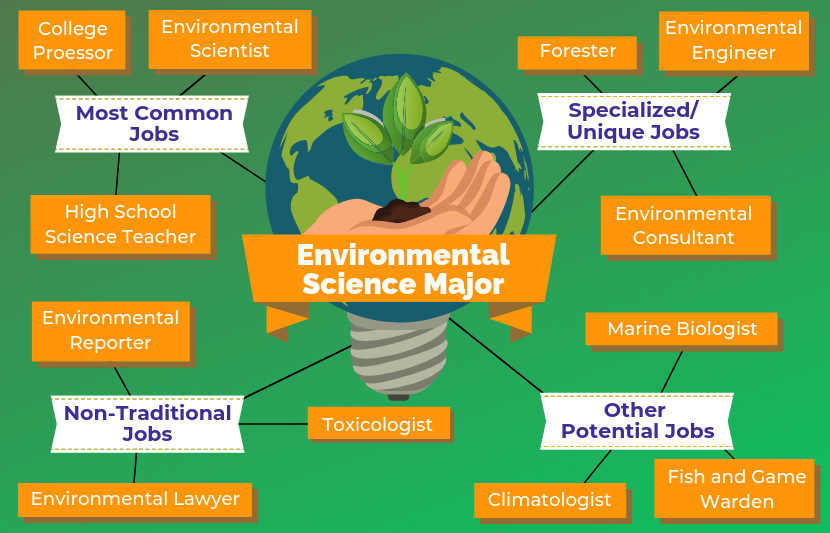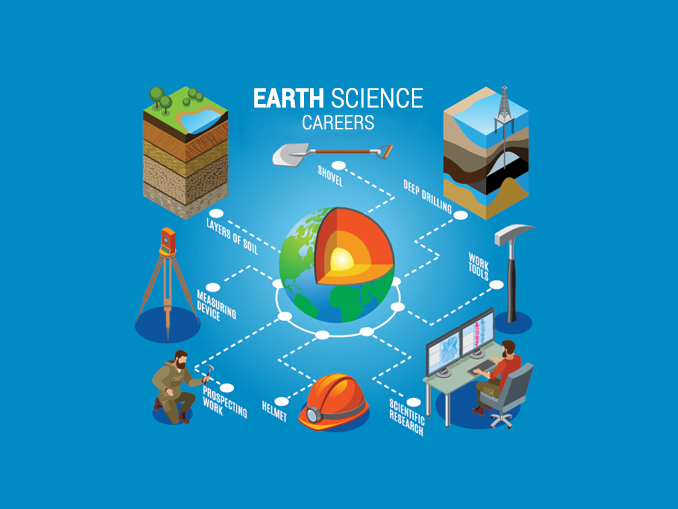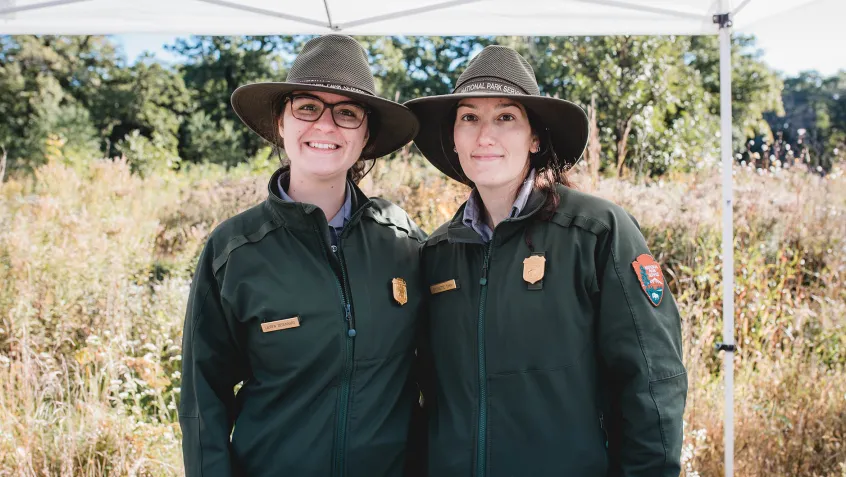If you have a passion for the environment and a desire to make a positive impact, then exploring careers in environmental science might be the perfect path for you. With a focus on students interested in pursuing this field in the USA, this article provides a comprehensive overview of the various career opportunities available in environmental science. From environmental scientists who study and protect our ecosystems to specialists who develop and implement sustainable practices, there is a wide range of fascinating roles waiting for you. So, jump in and discover the exciting and rewarding world of environmental science!

This image is property of www.tun.com.
1. Job Description
1.1 Definition of Environmental Science
Environmental science is a multidisciplinary field that focuses on understanding the natural world and the impact of human activities on the environment. It involves studying the physical, chemical, and biological components of the environment and how they interact with each other. Environmental scientists use their knowledge to develop strategies for sustainable resource management, pollution control, and conservation.
1.2 Role of an Environmental Scientist
As an environmental scientist, your primary role is to research and analyze the environment to identify potential challenges and propose solutions. You are responsible for assessing the impact of human activities on ecosystems, wildlife, and natural resources. Additionally, you may conduct fieldwork to collect data, monitor environmental conditions, and develop models to predict future trends.
1.3 Duties and Responsibilities
The duties and responsibilities of an environmental scientist may vary depending on the specific job and industry. However, some common tasks include conducting environmental assessments, analyzing data and samples, preparing reports, advising on environmental regulations, and collaborating with other professionals to address environmental issues. You may also be involved in designing and implementing environmental monitoring programs, conducting research studies, and educating the public about environmental conservation efforts.
2. Education and Training
2.1 Environmental Science Degree
To pursue a career as an environmental scientist, obtaining a bachelor’s degree in environmental science or a related field is typically required. This degree program provides a solid foundation in the basic principles of biology, chemistry, ecology, and geology, as well as specific courses in environmental science. It equips you with the necessary knowledge and skills to understand and analyze environmental issues.
2.2 Relevant Coursework
During your education, you will take a range of courses relevant to environmental science, such as environmental chemistry, ecology, geology, environmental policy, and environmental management. These courses will provide you with a deep understanding of the scientific aspects of environmental science as well as the social and policy implications.
2.3 Internships and Field Experience
While in college, it is highly recommended to gain practical experience through internships or fieldwork. This hands-on experience allows you to apply your knowledge in real-world settings and develop valuable skills. Interning at government agencies, environmental consulting firms, or research institutions will give you exposure to different aspects of environmental science and provide networking opportunities.
2.4 Professional Certifications
Obtaining professional certifications, such as the Certified Environmental Scientist (CES) or the Certified Professional Environmental Auditor (CPEA), can enhance your employability and demonstrate your expertise in the field. These certifications are often required for certain positions and can provide a competitive edge in the job market.

This image is property of i.ytimg.com.
3. Skills and Qualities
3.1 Strong Analytical Skills
As an environmental scientist, you must possess strong analytical skills to analyze complex data and interpret scientific information. You will need to critically evaluate research findings, identify patterns and trends, and draw conclusions based on evidence. Being able to think critically and solve problems analytically is essential for addressing environmental challenges.
3.2 Problem-solving Abilities
Environmental scientists are often faced with complex environmental problems that require innovative solutions. Strong problem-solving abilities are crucial in order to assess the root causes of environmental issues, develop effective strategies, and implement sustainable practices. You must be able to think creatively and find practical solutions that consider both environmental and societal factors.
3.3 Knowledge of Environmental Regulations
A solid understanding of environmental regulations is essential for an environmental scientist. You will be responsible for ensuring compliance with local, state, and federal environmental laws and regulations. Staying up-to-date with ever-changing environmental policies and regulations is crucial to ensure that your environmental projects and initiatives are in line with legal requirements.
3.4 Effective Communication
Effective communication is fundamental in the field of environmental science. You will need to communicate complex scientific concepts to a variety of audiences, including policymakers, clients, and the public. Whether it’s writing reports, giving presentations, or engaging in public outreach, being able to convey your findings and recommendations clearly and persuasively is essential.
3.5 Attention to Detail
Attention to detail is essential for environmental scientists as they often deal with large amounts of data and complex information. Being meticulous in data collection, analysis, and documentation ensures accuracy in scientific findings and reports. Paying attention to details can also help identify potential environmental risks and propose effective mitigation measures.
3.6 Adaptability and Flexibility
Environmental science is a dynamic field that requires adaptability and flexibility. As an environmental scientist, you may need to work in various settings, such as laboratories, field locations, or government offices. You must be able to adjust to different work environments and handle unexpected challenges that may arise during fieldwork or research projects.
4. Job Opportunities
4.1 Government Agencies
Government agencies at the local, state, and federal levels offer numerous job opportunities for environmental scientists. These agencies are responsible for enforcing environmental regulations, conducting environmental assessments, and developing policies related to resource management, pollution control, and conservation.
4.2 Consulting Firms
Environmental consulting firms provide services to businesses, government agencies, and non-profit organizations. They offer expertise in environmental assessments, compliance monitoring, environmental impact assessments, and sustainability planning. Working for a consulting firm allows you to work on a variety of projects and collaborate with diverse stakeholders.
4.3 Non-profit Organizations
Non-profit organizations dedicated to environmental conservation and advocacy are another potential career path for environmental scientists. These organizations focus on addressing environmental issues, raising awareness, and implementing sustainable practices. Working for a non-profit organization allows you to make a positive impact on the environment and engage in community-based initiatives.
4.4 Research Institutions
Research institutions, such as universities and private research facilities, provide opportunities for conducting environmental research and advancing scientific knowledge. As an environmental scientist working in a research institution, you may have the opportunity to investigate specific environmental issues, develop innovative solutions, and contribute to scientific publications.
4.5 Educational Institutions
Educational institutions at all levels, from K-12 schools to colleges and universities, employ environmental scientists as teachers and instructors. These positions allow you to educate and inspire future generations about environmental science, sustainability, and conservation. Teaching also provides the opportunity to conduct research and publish academic papers.
4.6 Private Sector
The private sector offers a range of opportunities for environmental scientists, especially in industries such as energy, manufacturing, and construction. Environmental scientists working in the private sector are responsible for ensuring compliance with environmental regulations, conducting environmental impact assessments, and developing sustainable practices within the organization.

This image is property of earthhow.com.
5. Salary and Job Outlook
5.1 Average Salary of Environmental Scientists
The average salary of environmental scientists varies depending on factors such as education, experience, industry, and location. According to the Bureau of Labor Statistics (BLS), the median annual wage for environmental scientists and specialists was $73,230 as of May 2020. However, salaries can range from around $49,850 for the lowest 10% to over $124,760 for the highest 10%.
5.2 Factors Affecting Salary
Several factors can influence an environmental scientist’s salary. Higher levels of education, such as obtaining a master’s or doctoral degree, can lead to higher salary potential. Additionally, experience and expertise in specialized areas of environmental science, such as renewable energy or pollution control, can also increase earning potential. Location and industry are also key factors, with positions in urban areas and high-demand industries typically offering higher salaries.
5.3 Job Growth and Demand
The job outlook for environmental scientists is promising, with faster-than-average growth projected in the coming years. The BLS estimates a 8% employment growth for environmental scientists and specialists from 2019 to 2029, driven by increasing public concerns about environmental issues, the need for environmental impact assessments, and demand for sustainability planning and resource management.
6. Environmental Science Specializations
6.1 Renewable Energy
Specializing in renewable energy involves studying and developing sustainable energy sources, such as wind, solar, hydroelectric, and geothermal power. Environmental scientists in this field evaluate the environmental impact of renewable energy projects, assess potential risks, and propose mitigation measures. They also work on improving energy efficiency and implementing sustainable energy practices.
6.2 Pollution Control and Remediation
Environmental scientists specializing in pollution control and remediation focus on developing strategies to monitor, prevent, and clean up pollution in air, water, and soil. They assess the environmental impact of pollutants and develop effective techniques for pollution control. They also contribute to the restoration of contaminated sites and work on preventing further pollution through sustainable practices.
6.3 Conservation and Restoration
Conservation and restoration specialists work towards preserving and restoring natural ecosystems and wildlife habitats. They study the impacts of human activities on biodiversity, develop conservation plans, and implement measures to protect endangered species and conserve natural resources. These specialists often collaborate with government agencies, non-profit organizations, and local communities to promote sustainable conservation practices.
6.4 Environmental Policy and Planning
Specializing in environmental policy and planning involves working on developing and implementing environmental regulations, policies, and planning initiatives. Environmental policy specialists analyze the social, economic, and environmental impacts of policies and propose sustainable solutions. They also work on facilitating compliance with environmental regulations and engage in policy advocacy.
6.5 Sustainability
Sustainability specialists focus on promoting sustainable practices and developing strategies for resource management. They assess the environmental impact of various activities, such as agriculture, transportation, and waste management, and propose environmentally friendly alternatives. These specialists play a crucial role in developing sustainable policies and practices for businesses, communities, and governments.

This image is property of cms-assets.themuse.com.
7. Professional Development
7.1 Continuing Education
Continuing education is essential for environmental scientists to stay up-to-date with emerging trends, technologies, and regulations in the field. Participating in workshops, seminars, and specialized training programs allows you to enhance your skills and knowledge. Additionally, pursuing advanced degrees, such as a master’s or doctoral degree, can open up opportunities for research, teaching, and higher-level positions.
7.2 Networking and Professional Associations
Networking plays a vital role in building connections and exploring job opportunities in the field of environmental science. Joining professional associations, such as the National Association of Environmental Professionals (NAEP) or the American Geophysical Union (AGU), provides access to networking events, conferences, and professional resources. These associations also offer opportunities for career development and staying connected with the latest research and industry trends.
7.3 Publications and Conferences
Publishing research papers and attending conferences are important ways for environmental scientists to showcase their work, collaborate with peers, and contribute to the scientific community. Publishing in reputable journals helps to establish credibility and visibility in the field. Presenting research findings at conferences allows you to gain feedback, exchange ideas, and stay informed about cutting-edge research.
7.4 Advanced Degree Options
Obtaining an advanced degree, such as a master’s or doctoral degree, can provide additional opportunities for career advancement in environmental science. A master’s degree allows for specialization in specific areas of environmental science and can lead to senior-level positions in research or management. A doctoral degree opens doors to careers in academia, research institutions, and executive-level positions.
8. Environmental Science Careers in USA
8.1 Overview of the Job Market
The job market for environmental scientists in the USA is promising, with a growing demand for professionals who can address environmental challenges and promote sustainability. The government’s focus on environmental conservation, renewable energy, and climate change mitigation has created numerous job opportunities in various sectors.
8.2 Top States for Environmental Science Jobs
Several states in the USA offer a high concentration of environmental science jobs. California, for example, is known for its strong commitment to environmental conservation and sustainability, making it an attractive state for environmental scientists. Other states with a high demand for environmental scientists include Texas, Florida, Washington, and New York.
8.3 Leading Employers in the Field
Both public and private sector organizations provide employment opportunities for environmental scientists. Government agencies such as the Environmental Protection Agency (EPA), the National Park Service, and state departments of environmental conservation are among the leading employers in the field. Private sector employers can include consulting firms, energy companies, manufacturing companies, and environmental non-profit organizations.

This image is property of www.neefusa.org.
9. Work Environment
9.1 Indoor vs. Outdoor Work
Environmental scientists can work in a combination of indoor and outdoor settings depending on their specific job requirements. While some tasks, such as data analysis and report writing, are performed indoors in offices or laboratories, fieldwork is often an integral part of the job. Fieldwork involves collecting samples, conducting surveys, monitoring environmental conditions, and assessing the impact of human activities on the environment.
9.2 Travel Requirements
Environmental scientists may need to travel frequently, especially if their work involves fieldwork or project sites located in different regions or countries. Travel may be required to conduct site assessments, collect data, or attend meetings with stakeholders. It is important to be prepared for the potential travel demands of the job and be willing to work in various locations.
9.3 Fieldwork Challenges
Fieldwork in environmental science can present various challenges, including exposure to extreme weather conditions, physical demands, and remote locations. Environmental scientists must be prepared to work in challenging outdoor environments and adapt to unpredictable conditions. Additionally, fieldwork may require long hours, working in teams, and adhering to strict safety protocols.
9.4 Collaboration and Teamwork
Collaboration and teamwork are essential in the field of environmental science. Environmental scientists often work alongside professionals from different disciplines, such as engineers, biologists, policymakers, and community members. Effective collaboration and communication skills are crucial for successfully addressing environmental challenges and implementing sustainable solutions.
10. Job Satisfaction and Rewards
10.1 Making a Positive Impact
One of the most rewarding aspects of a career in environmental science is the opportunity to make a positive impact on the planet and future generations. Environmental scientists play a vital role in addressing environmental issues, conserving natural resources, and promoting sustainable practices. The knowledge that you are contributing to the well-being of the environment can bring a sense of fulfillment and purpose to your work.
10.2 Variety of Projects
Environmental science offers a wide variety of projects and challenges, ensuring that no two days are the same. From conducting research studies and environmental assessments to developing strategies for pollution control and resource management, the field provides constant opportunities for learning and growth. The diversity of projects keeps the work engaging and allows you to continually expand your knowledge and expertise.
10.3 Career Advancement Opportunities
With the growing demand for environmental scientists, there are ample opportunities for career advancement and professional growth. By gaining experience, acquiring additional certifications, or pursuing advanced degrees, you can qualify for higher-level positions with increased responsibilities and compensation. Additionally, networking and involvement in professional associations can open doors to new opportunities and career development.
10.4 Personal and Professional Fulfillment
A career in environmental science can bring personal and professional fulfillment. Working in a field that aligns with your passion for the environment and sustainability can provide a deep sense of gratification. Additionally, the opportunity to continuously learn, contribute to scientific research, and collaborate with like-minded professionals can contribute to a fulfilling and rewarding career.
In conclusion, a career in environmental science offers a wide range of opportunities to contribute to the understanding and preservation of the natural world. With a solid educational foundation, strong analytical skills, and a passion for the environment, you can embark on a fulfilling career that makes a positive impact on the planet. Whether you choose to work in government, consulting, non-profit, research, or the private sector, environmental science provides a promising and rewarding career path.